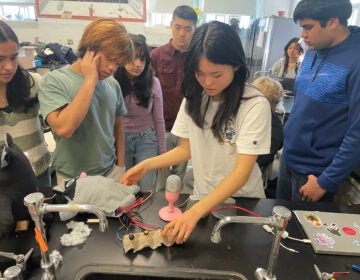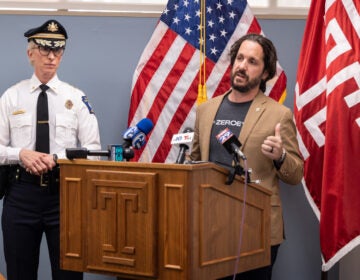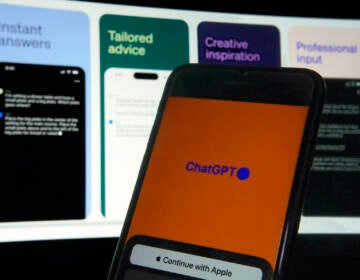Princeton High School students are national finalists in STEM competition for efforts to preserve vulnerable language
Their project involves an AI-powered stuffed animal that allows people to practice Mam, a Mayan language spoken in Guatemala.
Listen :54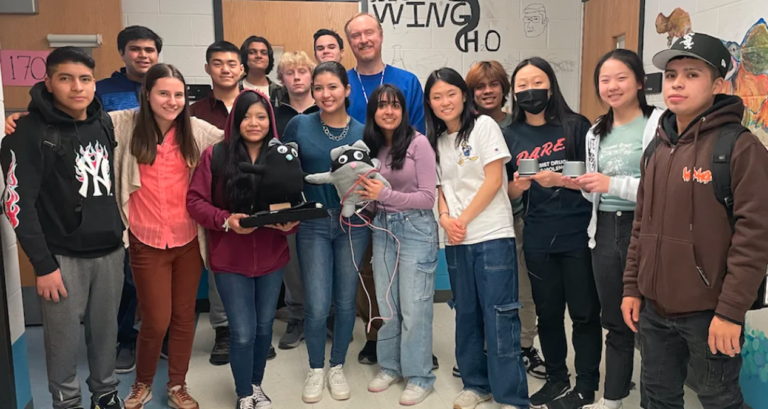
Some of the students representing Princeton High School in the Samsung Electronics Solve For Tomorrow STEM competition with their teacher, Mark Eastburn (center). Mayda Jiguan and Hayah Mian are holding the two prototypes the group developed to help preserve and to teach people how to speak Mam, a vulnerable language. (P. Kenneth Burns/WHYY)
From Camden and Cherry Hill to Trenton and the Jersey Shore, what about life in New Jersey do you want WHYY News to cover? Let us know.
A Princeton High School group has been named national finalists in Samsung’s Solve for Tomorrow STEM competition. The students will go to Washington, D.C., and compete against nine other high schools for one of the grand prizes.
“It’s exciting. It’s certainly a challenge. It’s something that we really want to make happen,” said Mark Eastburn, a research and science teacher who is leading the students in the project.
The students have created an artificial intelligence–powered stuffed animal that can hold conversations in Mam, one of many vulnerable languages that is projected to disappear by the end of the century. The language is spoken by about half a million people in the western highlands of Guatemala.
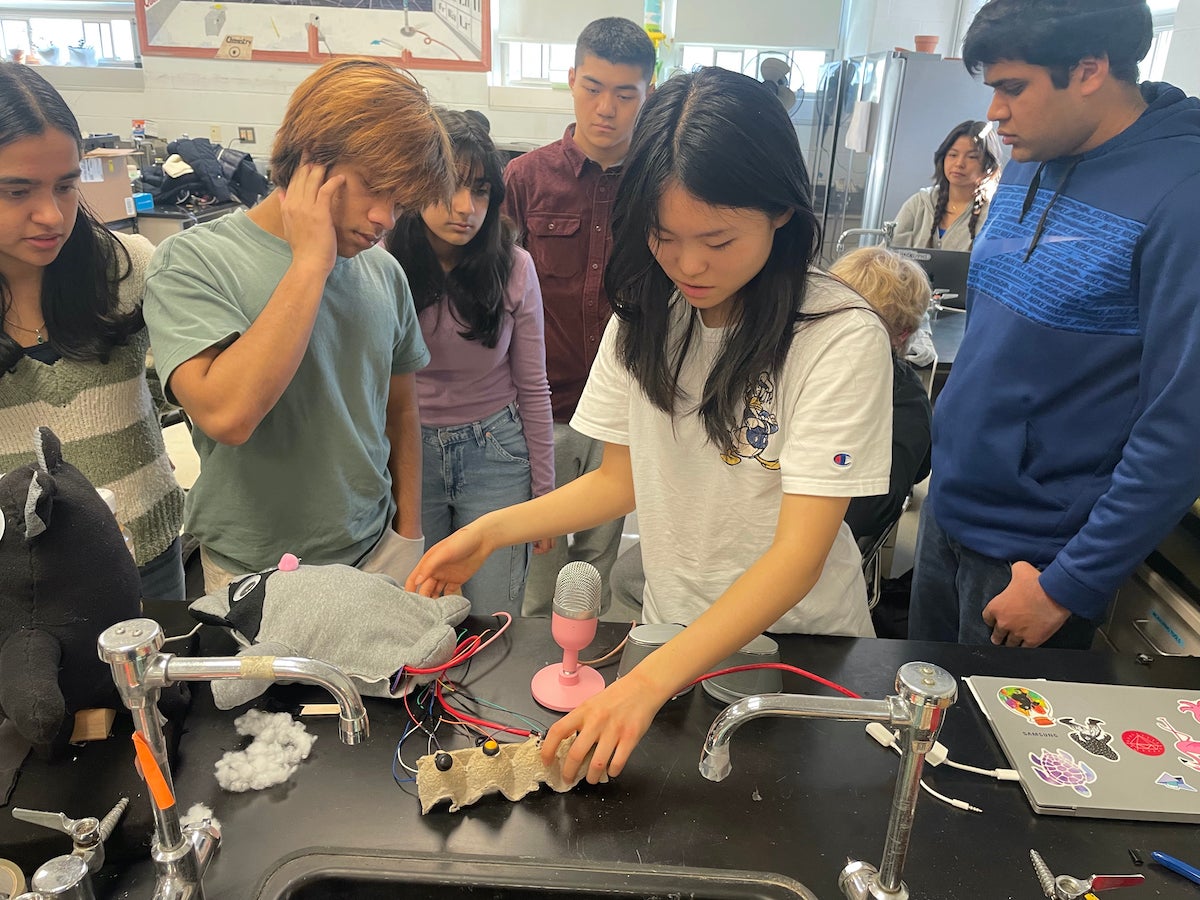
Eastburn hopes that the project continues beyond the competition.
“The idea to dream would be to have robots like this that are able to communicate and converse in Mam in schools, to at least allow children to utilize the language in the school and see it represented and seeing it affirmed in the school so that they will continue to use it outside of school,” Eastburn added.
To build the database, students are searching for whatever Mam resources they can find. They are working with a handful of Mam-speaking students in Princeton and in Morristown, where there is a large Mam-speaking community.
“When we first started recording some conversations, it was really interesting and sounded really interesting for me, because it’s not something that everybody’s doing. It’s like something really new,” said Achb’il Kab’, a Mam-speaking student at Morristown High School. “I’m really proud of the progress.”
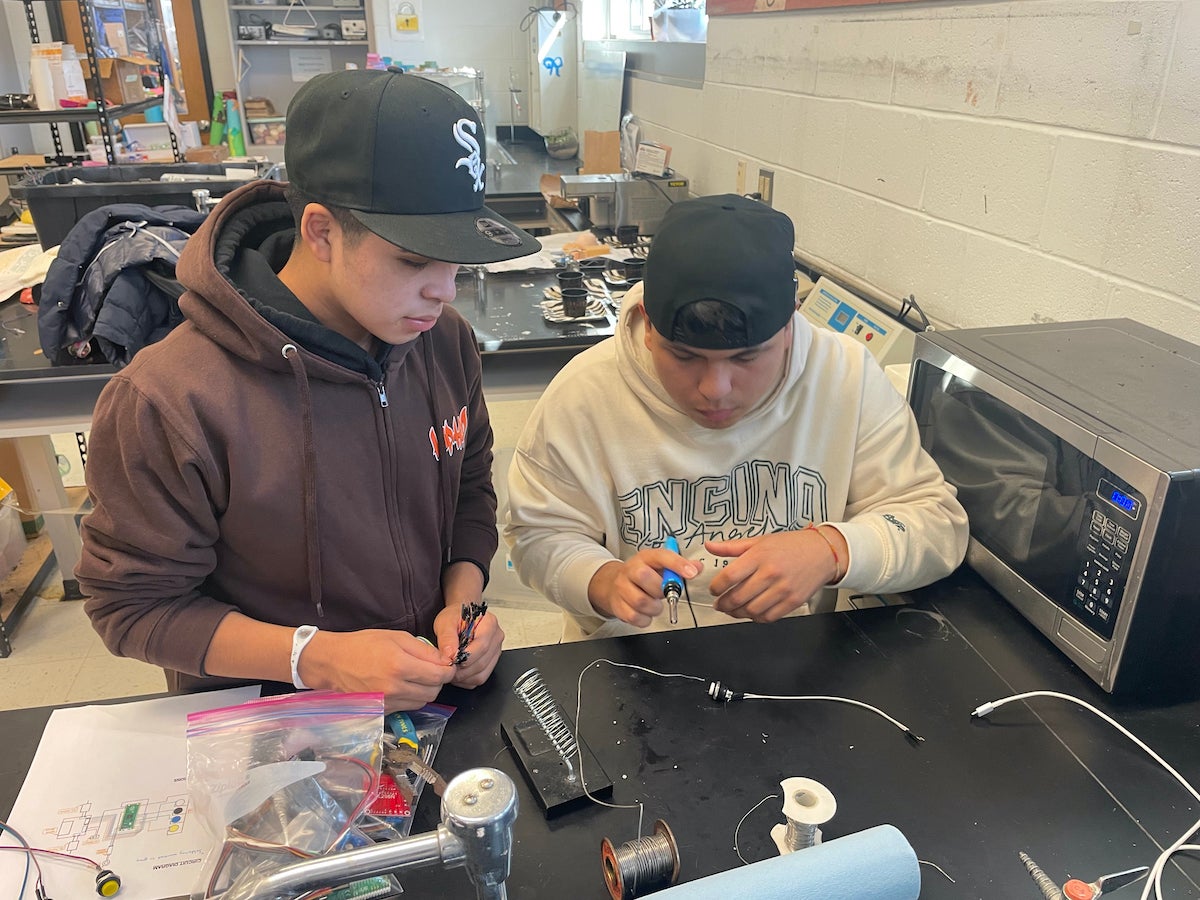
The students will be in Washington, D.C. on April 29 to pitch their idea before judges. Three winners will be announced the next day. Each winning team will receive a $100,000 grand prize. So far Princeton has won more than $60,000, including $50,000 for being selected as a national finalist.
Finalists can win an additional $10,000 through online public voting. People can vote — once per day — through April 23.
Eastburn said his students are up against “some very stiff competition.”
“We love our project but some of the others are extremely impressive also,” he said.
Among the nine competitors are students from Brandywine High School in Wilmington, Delaware. They created electronic board games that help special education students connect with their peers.

Saturdays just got more interesting.
WHYY is your source for fact-based, in-depth journalism and information. As a nonprofit organization, we rely on financial support from readers like you. Please give today.



